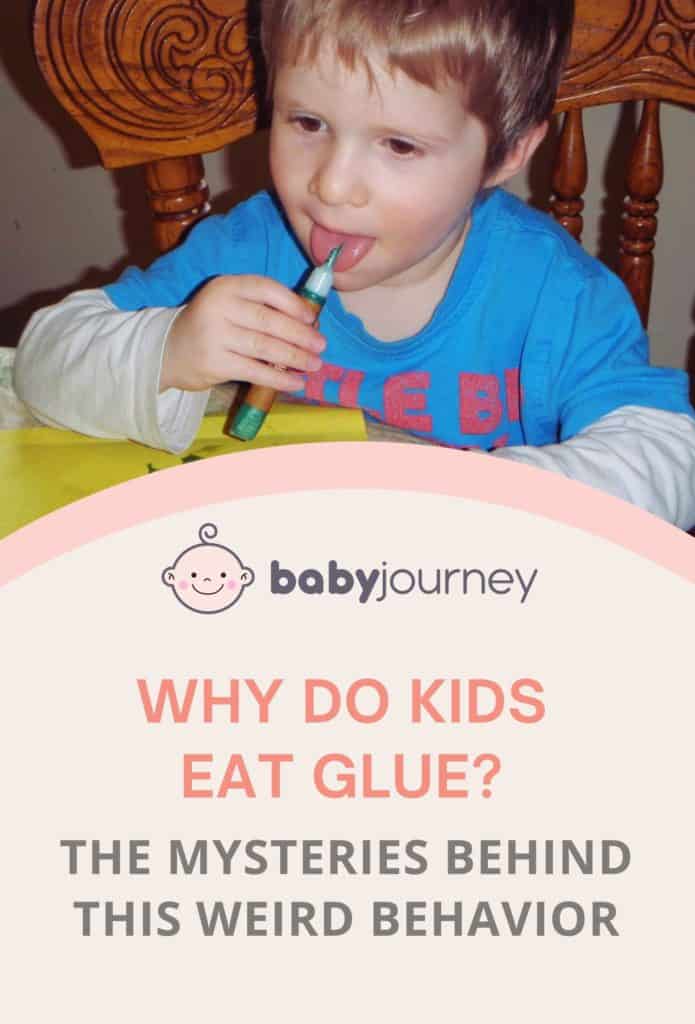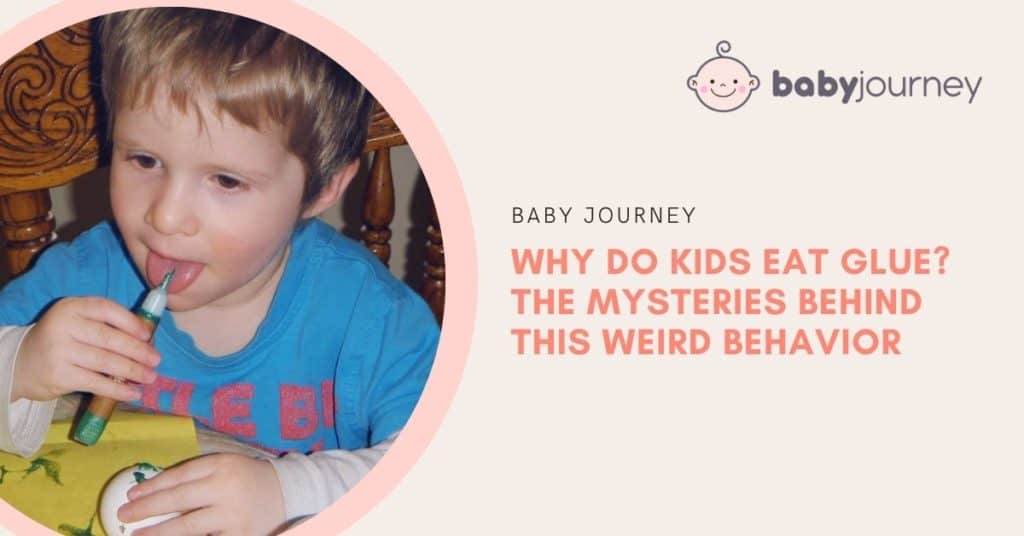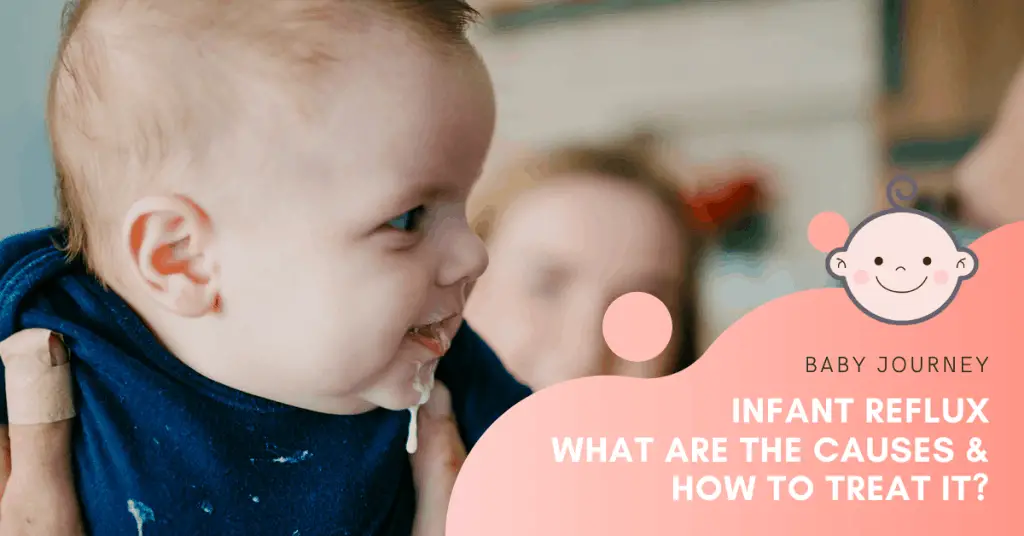Have you ever seen a child eating a glue stick? If you are a parent or a caregiver or a teacher, you’ve probably witnessed your child, or another child, eating glue at some point, whether it’s in stick or liquid form.
If you’ve been in any of those kids eating glue situations, you’re probably freaking out, wondering first of all if it’s safe for your child to eat paste and if you should call poison control; and second you’re probably wondering why do kids eat glue?
There are several reasons why kids eat glue, and we’ll explain them all to you, as well as if it’s safe.
Why Do Kids Eat Glue? Reason Behind This Weird Act
Glue eating is a strange habit for sure, and as adults we may be at a loss as to why our children are sampling their glue sticks or bottles. You may wonder if eating glue sticks is normal, or if your child has some strange problem.
There are four main reasons why kids eat paste. They are curiosity, attention-seeking, defiance, and an eating disorder called pica. We’ll explain all of these reasons so you can pinpoint which one your child has.
Curiosity
Probably one of the biggest reasons a child eats glue is out of curiosity. Just take a look at the stuff! If it’s a white glue stick, it spirals in and out of the tube in such a fascinating way, and quite honestly, it looks an awful lot like a cheese stick.
Glue in bottles is so creamy-looking, and is often colored or glittery. Small children learn about the world around them by putting things in their mouths instead of playing with sensory toys, and glue is often one of those things. Plus, they’re likely wondering, what does glue taste like?
If your young child eats glue only once or twice, it’s likely just out of curiosity. Once they figure out that that fascinating substance doesn’t taste good at all they won’t be eating it anymore.
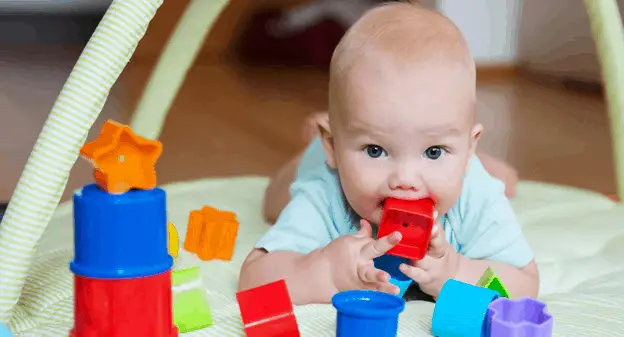
Attention-Seeking
All children crave attention from the adults around them, especially from their parents. Sometimes children don’t get the attention they crave, whether it’s because they have a new baby sibling who takes up much of mom and dad’s time, or because they live in a bad home situation.
These children will often do strange things to get attention from the adults in their lives, whether it be their parents or their teachers. If you find that the glue eater often vies for attention, it’s likely that their glue eating is just another way of seeking attention.
Also read: The 5 Types of Children Asthma Medications
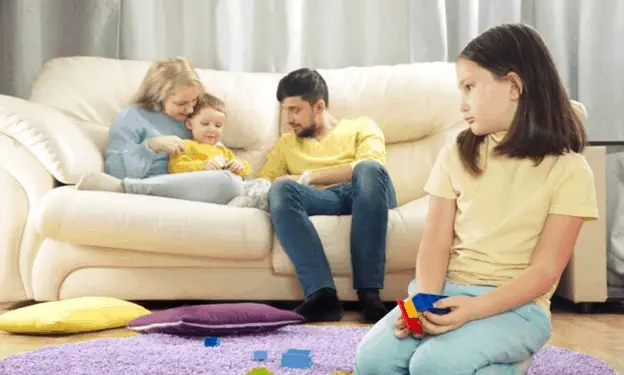
Defiance
Young children are very complex, and it can be surprising what motivates them to do strange things. Very often if you tell a small child “no” they’ll do exactly the thing that you told them not to do. Eating glue could just be their way of showing defiance and pushing boundaries apart from screaming their lungs at you.
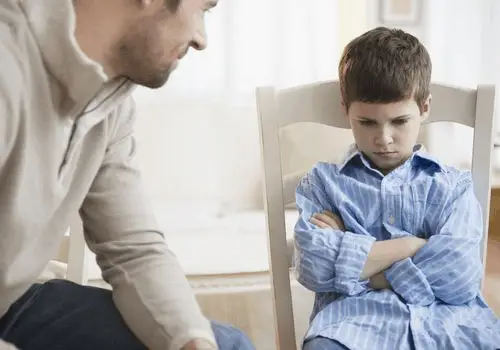
Pica
If none of these things is motivating your child to eat glue, it could be pica. Different from food jag, pica is an eating disorder that causes people to eat inedible things.
Small children often put things in their mouths, but you can know that what they’re doing is a disorder if they actually consume those things. While children often taste things, they don’t usually consume them.
Some things that children who develop pica often crave are hair, clay, glue, paper, dirt, paint chips, chalk, crayons, and poop as well as other non-food items. The cause of pica is still unknown, though there’s a lot of speculation about it.
Most often it’s caused by significant stress such as abuse and malnourishment, or by mental health problems. If you notice your child eating non food items, get help immediately.
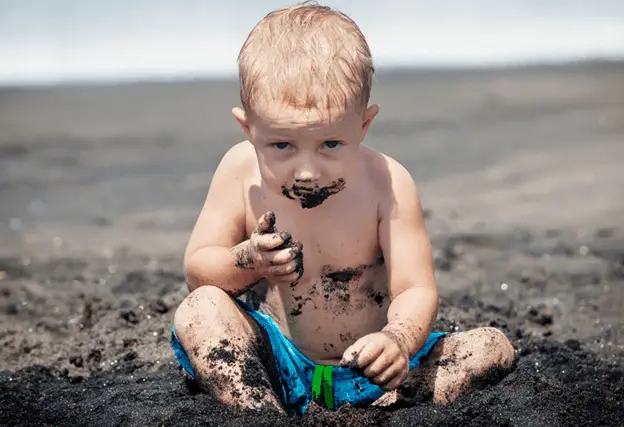
Is Eating Glue Dangerous?
What happens if you eat glue? Well, it depends on whether the child simply tastes it or consumes it, and how much. Most glue like Elmer’s or pastes with a similar formula are non-toxic.
Elmer’s glue uses polyvinyl alcohol, propylene glycol, and polyvinyl acetate, which are all non-toxic. None of those ingredients will cause serious harm to children if consumed.
Consumed in large amounts, however, the ingredients in Elmer’s glue paste or sticks can cause stomach pains, bowel problems, and intestinal infections. If your child is having bad stomach pains after eating Elmer’s glue it may be necessary to seek medical help.
The real danger is in your child consuming industrial glues. Superglue or anything stronger than school glue can cause serious health problems. If your child consumes toxic glue don’t hesitate to contact Poison Control at 1-800-222-1222.
If you suspect your child has pica, it’s important to get them help for that as soon as you can. Take your child to a children’s psychologist who can help figure out what’s going on. Even if you don’t think your child has pica, eating glue more than on an occasional basis can signal OCD.
How to Get Your Child to Stop Eating Glue
If your child is eating paste in school or at home, it’s important to stop that habit immediately. While school glue is generally non-toxic, it’s not a good habit for children to eat non-food items.
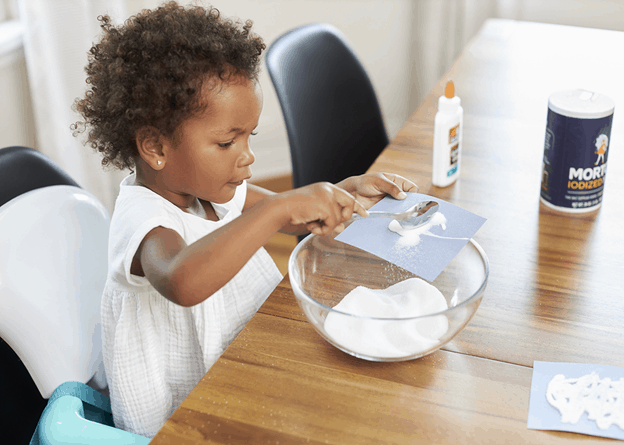
Give adequate attention
If you suspect that your child is eating glue for attention, try to give him or her enough of your attention throughout the day. If the glue eating is happening at school the teacher may not be able to keep a close eye on them all the time, but in the end it still comes back to your attention.
Children often don’t act out in school unless there’s something going on at home. Giving your child enough attention at home also helps to monitor glue eating behavior.
Give your child tape instead of glue
If your child is a paste eater, it may be necessary to remove the glue entirely. Give your child tape instead of glue when they’re doing art projects.
Change the glue brand
If you’re worried about your brand of glue being toxic, change to Elmer’s school paste. The ingredients are non-toxic, and while they might give your child a stomach ache if consumed in large quantities, it’s generally safe.
Implement child discipline techniques
If your child is eating glue out of defiance it may be necessary to discipline them. Implement consequences such as if they are caught eating glue they will have to sit in time out, etc. sometimes a gentle reprimand helps a lot with getting children to stop certain behaviors.
Get teachers’ help
Make sure your child’s teacher knows if your child is eating glue, and enlist their help in stopping the behavior. Many grade schools require glue, but if your child is a glue eater make sure their teacher is on board with curbing that habit.
Take your child to see a child psychologist
If your child continues to eat things that are not edible or if you notice underlying behaviors such as pica or OCD, take your child to see a child psychologist who can help them move past those behaviors and pinpoint the root issues.
Tips for Safe Handling of Glue With Kids Around
- Only use non-toxic children’s glue around children
- Closely supervise a glue eater when they are using paste
- Switch glue brands if need be
- Avoid using colorful and glittery glues that will encourage tasting
- Use glue sticks if your child likes to eat liquid glue, and vise versa
- Keep glue out of your child’s reach when not in use
FAQs on Children Eating Glue
How can I satisfy my child’s pica cravings?
If your child has pica, the best course of action is to get professional help instead of simply trying to satisfy their cravings. You can, however, supplement your child’s treatment by trying to provide your child with healthy snacks throughout the day.
Don’t force them to eat, but make sure they know that the food is there. Model eating those snacks so they can see healthy behaviors. This advice is by no means to be taken as medical advice. Be sure to contact your baby’s doctor if your child has pica.
What happens if you swallow a little bit of super glue?
If you swallow fresh superglue it’s likely to lead to serious issues. Super glue can block the gastrointestinal tract, causing abdominal pain, nausea, and vomiting. In larger amounts it can severely block your mouth and throat and you could die of asphyxiation.
Can children use PVA glue?
PVA glue is generally not recommended for children under 3 years of age.
Is PVA glue poisonous if ingested?
PVA glue is made from polyvinyl acetate and it is toxic if ingested. Keep away from children.
What are some glue products that are safe for toddlers?
Many glues include toxic ingredients such as ethanol, toluene, acetone, and more. Not only are these dangerous when ingested, but breathing them in can cause issues such as difficulty breathing, nausea, anxiety, and even seizures.
Always check that your child’s glue is non-toxic. Elmer’s School Glue is generally safe as are most glue sticks meant for child’s use. If you want to go a step further, look for Ukkie, Tesa, and Onyx and Green glues. These brands make safe glues for children.
Conclusion
If you see your little one licking a dollop of glue off of their fingers, or biting into a glue stick, chances are they’re just curious and are testing to see if it tastes as good as it looks. If that’s the case, it’s likely that they won’t make it a habit.
There are, of course, more serious habits like pica or OCD, so always keep an eye out for that, but remember not to stress. As long as you are attentive when your child is using glue and keep it out of your child’s reach when you’re not around to supervise, you’ll be able to nip any issues in the bud.
Has your child ever eaten glue? What are your tips for preventing it? Comment below if you have any questions, comments, or concerns.
—
